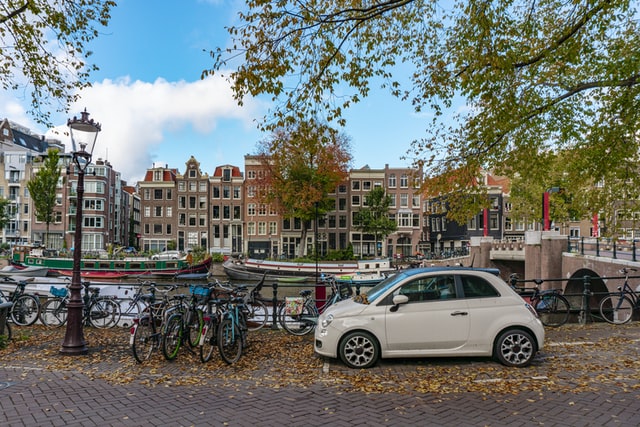Buying a house in the Netherlands
Although it is probably better to rent for a while before buying a house, the difference in monthly payments can make purchasing an attractive option for those staying longer. The difference comes largely from the fact that (for the time being at least) the Dutch government repays some of the mortgage interest as tax relief.

We explore in this section
Buying a property
Before you acquire your new property, you need to go through a time-consuming process with quite a lot of third parties involved like the real estate agent (property broker), the mortgagee for granting you a mortgage (loan) (e.g. bank or insurance company), the civil law notary, and the tax consultants. Because of this, you might well lose track of proceedings at a certain stage of the process.
Things that the process requires you to do are: starting to look around for the house (research), doing the negotiations with the selling estate agent, and making sure that the right conditions for the purchase are accepted, taking care of the technical survey, making a proper judgement about the (legal) contents of the purchase agreement, taking care of the mortgage with the requested conditions, collecting the required documents for the mortgage, contacting the civil law notary for setting up the legal deeds for the date of delivery (including translations) and taking care of the involved tax matters. For expatriates, it is also a complicating fact that they are often not familiar with Dutch law (continental law), which is quite different from e.g. British law.
The amount of interest repaid by the government depends on the level of income tax you pay. This in turn will depend on factors such as the 30% tax facility (check the paragraph Taxes) as well as gross salary. This is a complex field and it is advisable to seek help from a professional financial advisor before going ahead with any purchase.
When buying a house, you should also be aware that costs of purchase (including taxes) total around 10% of the cost price, and are paid by the buyer. Dutch house prices have risen sharply over the last few years, averaging around 12% per year.
Read more in detail about following topics :
- Mortgage
- Home inspection (Bouwkundige
keuring) - Transfer tax (Overdrachts
belasting) - Notary fees (Notariskosten)
- Appraisal report (Taxatierapport)
- What is WOZ-waarde
- Real Estate Agents
Dutch Mortgage
Buying a property is one of the biggest financial and emotional decisions in your life. Especially when you buy a house in another country like the Netherlands where language and lack of connections could make it more challenging. What do you need to do to get a mortgage? In this section we explore your options.

Home renovation
You just bought or are going to buy a house in the Netherlands. What do you need to think about regarding home renovation, in this topic we look at building regulations and permits, sustainability, contractor selection and much more. Read more in our section Home renovation.

Do i need home insurance?
Home insurance is not legally required in the Netherlands, but it is highly recommended for homeowners and renters. There are two main types of home insurance to consider:
Homeowners insurance (Opstalverzekering)
This insurance covers damage to the structure of your home. If you have a mortgage, your lender will usually require you to have this type of insurance. It covers events like fire, storms, and vandalism.
Contents insurance (Inboedelverzekering)
This insurance covers your personal belongings within your home. It protects against theft, fire, water damage, and other risks. While not mandatory, it is advisable to protect your possessions.
Get a direct Quote from Lemonade or Read further in our Home insurance section.
